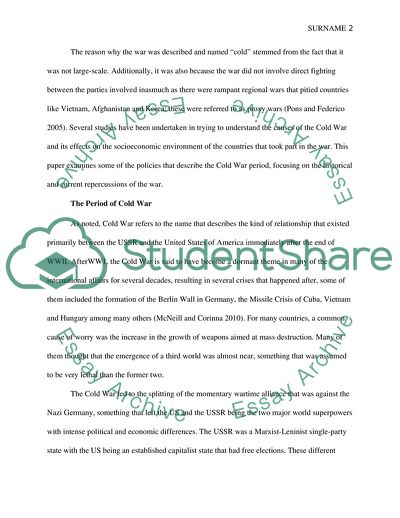Cite this document
(Cold War Returns for the World Literature review Example | Topics and Well Written Essays - 2000 words, n.d.)
Cold War Returns for the World Literature review Example | Topics and Well Written Essays - 2000 words. https://studentshare.org/history/1880922-final-paper-historiography-paper
Cold War Returns for the World Literature review Example | Topics and Well Written Essays - 2000 words. https://studentshare.org/history/1880922-final-paper-historiography-paper
(Cold War Returns for the World Literature Review Example | Topics and Well Written Essays - 2000 Words)
Cold War Returns for the World Literature Review Example | Topics and Well Written Essays - 2000 Words. https://studentshare.org/history/1880922-final-paper-historiography-paper.
Cold War Returns for the World Literature Review Example | Topics and Well Written Essays - 2000 Words. https://studentshare.org/history/1880922-final-paper-historiography-paper.
“Cold War Returns for the World Literature Review Example | Topics and Well Written Essays - 2000 Words”. https://studentshare.org/history/1880922-final-paper-historiography-paper.


